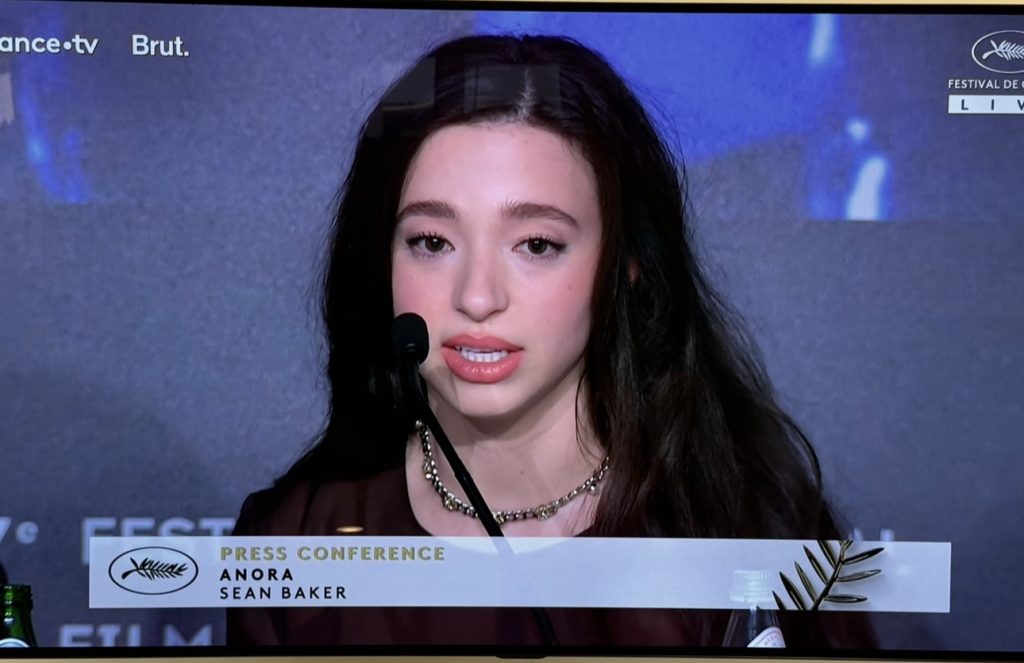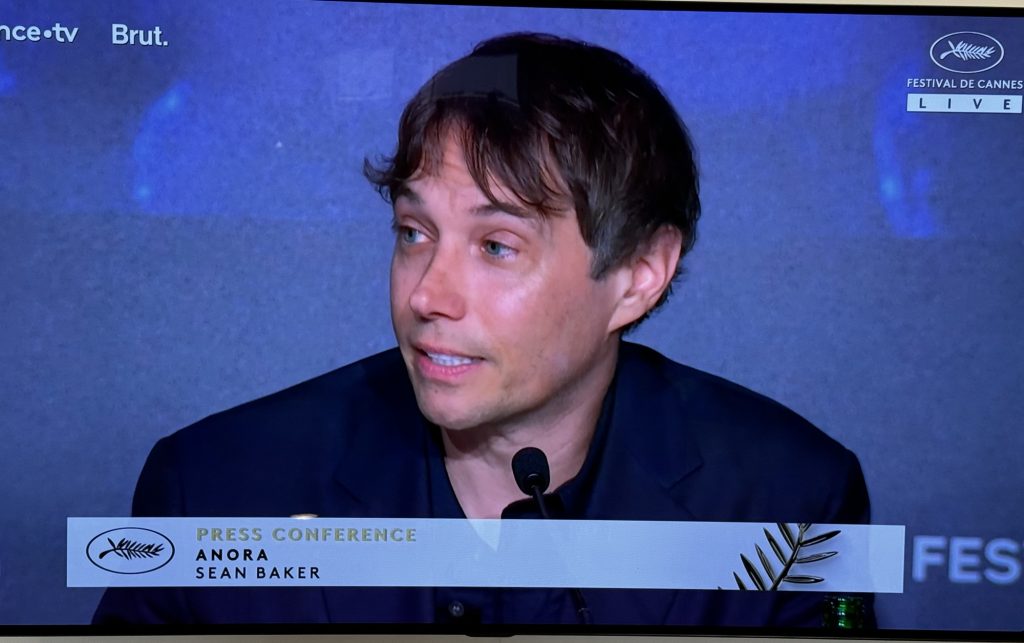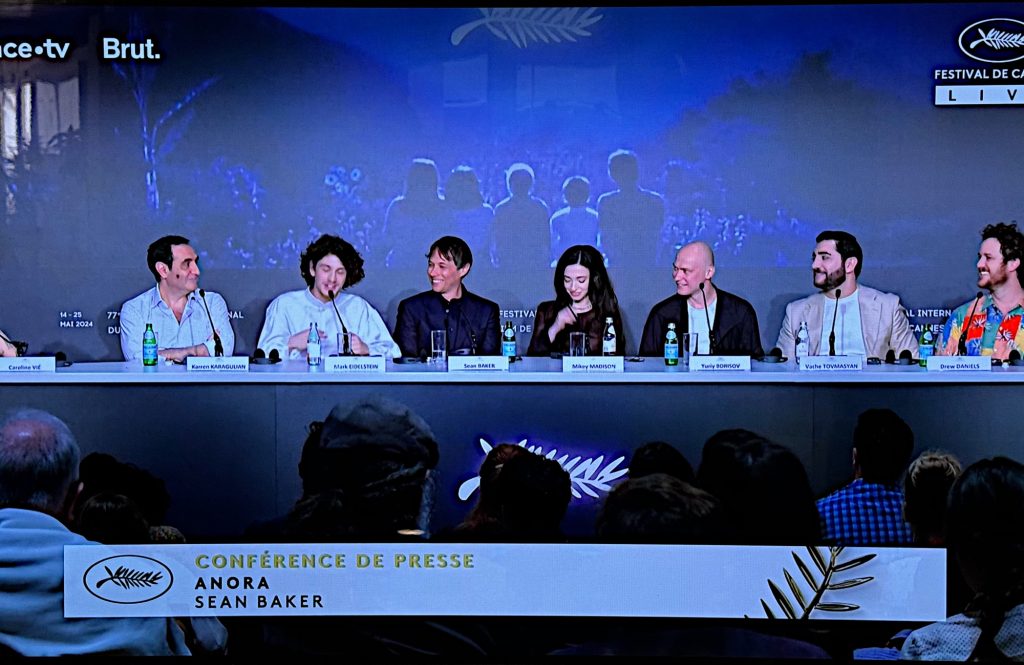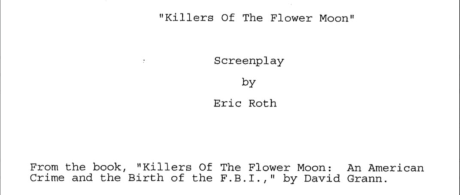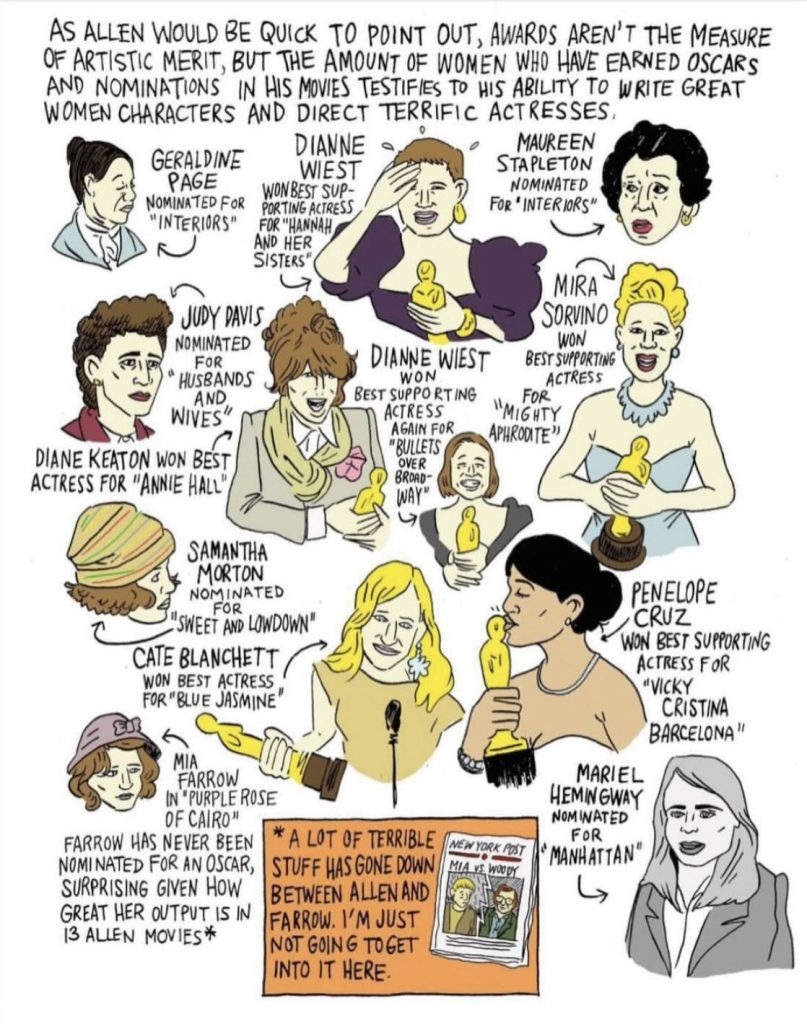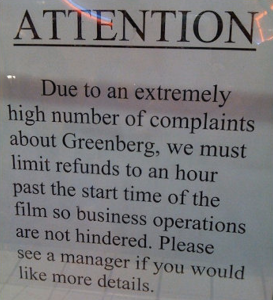To my great surprise and delight, Christy Hall‘s Daddio, which I was remiss in not seeing during last year’s Telluride Film Festival, is a truly first-rate two-hander — a pure-dialogue, character-revealing, heart-to-heart talkfest that knows what it’s doing and ends sublimely.
Yes, it all happens inside a Yellow Cab on a long nocturnal trek from JFK airport to midtown Manhattan. It may not sound like much, I realize, because it’s just talk, but it holds you with ease and humanity and really effing pays off…sticks the landing with assurance.
I wasn’t exactly astonished by the quality of the lead performances from Sean Penn (driver) and Dakota Johnson (passenger), as they have the whole film to themselves and are both formidable, ace-level talents (Penn especially), but I was definitely taken aback by the quality of Hall’s dialogue and how she magically maintains a sense of story tension start to finish, even though there’s no “story” and it’s all about dodging, contemplating, confessing and looking within.
In my mind Daddio is right up there with Steven Knight‘s Locke (’13) — this century’s other great dialogue-driven, “guy driving on a nighttime highway while discussing fundamental issues” movie.
This may sound like excessive hyperbole, but I honestly feel that Daddio is in the same two-hander ballpark as Joseph L. Manchiewicz‘s Sleuth , Louise Malle‘s My Dinner with Andre, and Richard Linklater‘s Before Sunrise. I’m not saying it’s “better” than any of these three, but it delivers the same kind of step-by-step character cards.
Intially and quite naturally, Johnson’s unnamed protagonist (“Girlie”) holds her cards close to her chest, at least as far as Penn’s cabbie is concerned. But Hall shows us several text messages Girlie hae been getting from her highly hormonal boyfriend. To me he sounds like a real jerk — adolescent, eager-beaver (he actually sends her a dick pic), insensitive.
Penn’s “Clark” is an occasionally blunt (i.e., flirting with coarse) borough guy, and yet also sly, gentle and highly perceptive. Straight-up, decent, not an asshole. And a bit of an amateur shrink, or at least imbued with the observational powers of a seasoned Manhattan detective.
I’m not going to divulge what’s revealed or admitted to, but I can affirm that Daddio unfolds and hangs on in just the right way.
The conversation starts off casually and amusingly, but then a bad traffic accident happens, the traffic slows to a stop and we gradually understand that Johnson’s “Girlie” was up to while visiting her lesbo half-sister in the Oklahoma panhandle. The sister’s girlfriend sounds, by the way, like a Lily Gladstone type.
We get to absorb some melancholy situational truths about Clark and his two past wives and the (presumably modest) Queens house he lives in, etc. And yet the film primarily turns on Girlie’s relationship with the dick-pic sender, and this, trust me, takes on a greater weight as the film moves along.
On top of which Daddio is only 101 minutes long…congratulations for the discipline! And hats off to Hall, a very sharp, 40-year-old rookie.




